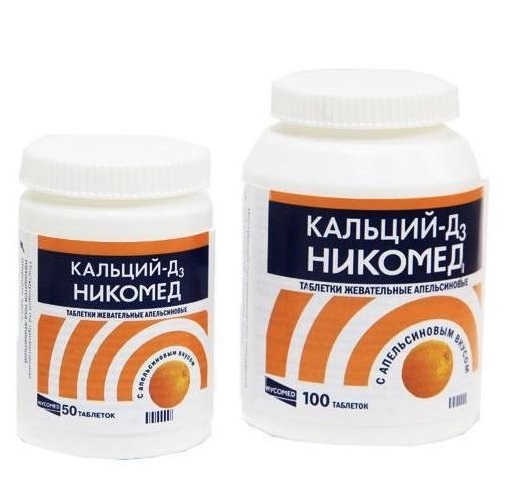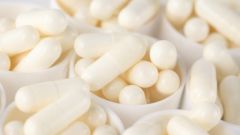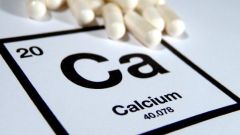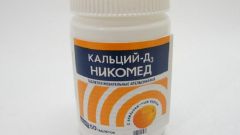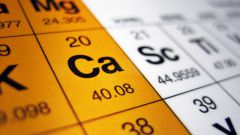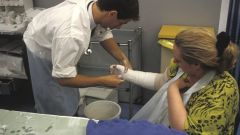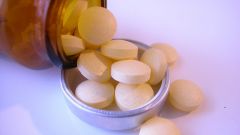Instruction on application of "Calcium-D3 Nycomed"
In the treatment of deficiency of calcium and vitamin D children from 12 years and adults appoint 1 tablet of the drug 2 times a day children 5-12 years – 1 tablet "Calcium-D3 Nycomed" 1-2 times a day. Dosage for children 3-5 years determined by the pediatrician. The duration of treatment when the lack of vitamins is 4-6 weeks. Repeated courses are recommended after consulting a doctor.
In the treatment of osteoporosis administered 1 tablet of the drug three times a day. For prevention of osteoporosis - on 1 tablet 2 times a day. The duration of treatment is determined individually, depending on the severity of the condition. Pregnant women are recommended to strictly adhere to the dosage prescribed by the doctor, since excess calcium can adversely affect fetal development.
The drug can be taken with food or independently. Tablets can be sucked, chewed or swallowed with water.
Contraindications and cautions
The drug should not be taken if you are hypersensitive to any of its components, including sucrose and fructose. This tool is contraindicated in hypervitaminosis of vitamin D, hypercalcemia, kidney stones, accompanied by the presence of kalcevich concretions. Also, the drug is contraindicated in severe renal failure, sarcoidosis, phenylketonuria, tuberculosis in an active form. The agent is not appointed children up to 3 years.
While the use of "Calcium-D3 Nycomed" with heart drugs and diuretics requires regular monitoring of calcium level in serum. Antibiotics must be taken separately from the preparation of calcium with an interval of at least 3 hours. Simultaneous treatment with laxatives reduces the absorption of vitamin D.
Products such as sorrel, spinach, rhubarb and whole grains, reduces calcium absorption. After eating take the drug is recommended no earlier than 2 hours.
Side effects
In the treatment of "Calcium-D3 Nycomed" may cause adverse reactions in the form of hypercalcemia, hypercalciuria, nausea, flatulence, constipation or diarrhea, stomach pain, and skin allergies (hives, itching, rash).
In some cases, it may be an overdose of the drug. Her symptoms are thirst, nausea, anorexia, muscle weakness, bone pain, fatigue, kidney stones, cardiac arrhythmia. At the onset of symptoms overdose must stop taking the drug, as well as cardiac and diuretic agents (if they attended) to do the washing stomach, replenish the loss of body fluids and to seek medical attention.
